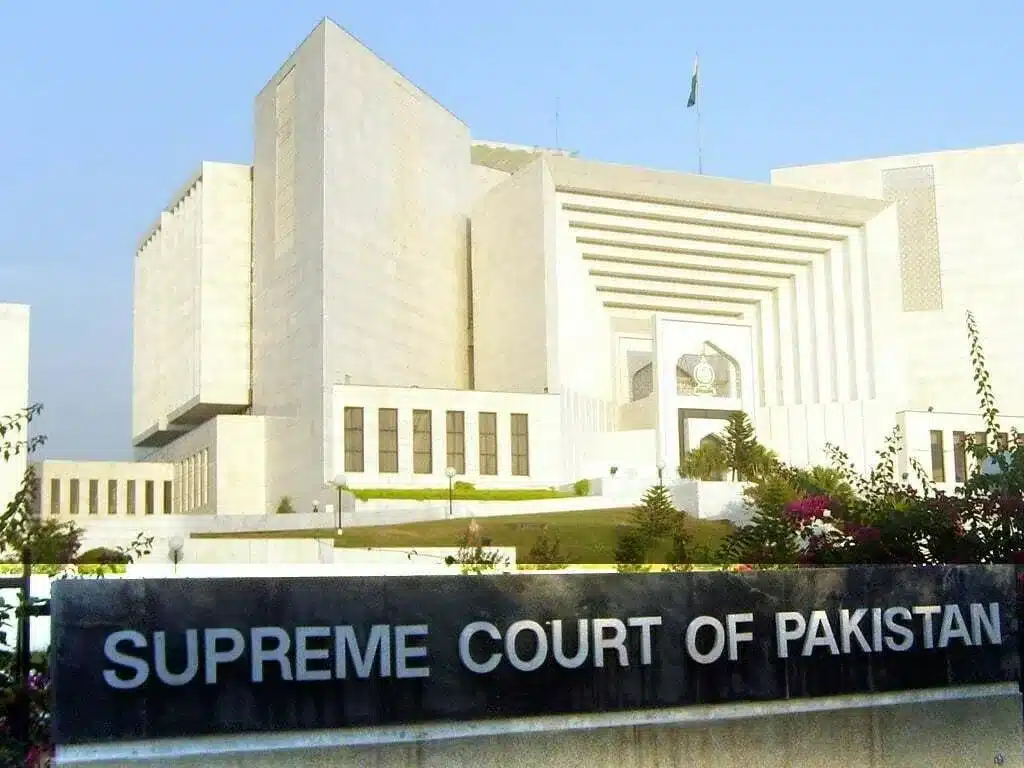In the wake of contentious objections by the Attorney General of Pakistan (AGP), the Supreme Court (SC) bench hearing the petitions challenging the trial of civilians in military courts faced dissolution again.
The event follows last week’s dissolution of the nine-member bench led by Chief Justice of Pakistan (CJP) Umar Atta Bandial.
The principal dissent came from Justice Qazi Faez Isa, who was announced as the next CJP three months ahead. Justice Isa contested the bench formation, referring to the recently enacted Supreme Court (Practice and Procedure) Act, 2023, which prescribes the protocol for bench constitution in cases concerning Article 184(3).
The Act mandates that the CJP meet with senior SC judges to activate the Supreme Court’s original jurisdiction under Article 184(3). Justice Sardar Tariq Masood, the third senior-most judge on the bench, concurred with Justice Isa, questioning the number of judges needed to hear an appeal if the SC act is deemed valid.
AGP’s Objection and The Ensuing Fallout
AGP Mansoor Usman Awan announced that the government had instructed him that Justice Shah should be excluded from the bench as the hearing commenced.
The Chief Justice of Pakistan (CJP) Umar Ata Bandial, clearly irritated by the statement, countered, “Your will will not make the bench.” He also questioned the federal government’s rationale for objecting to Justice Shah’s involvement. AGP Awan stated that the contention was due to a perceived “conflict of interest,” as the petitioner, former CJ Jawad S Khawaja, is related to Justice Shah.
Reacting to this, CJ Bandial defended the competence of Justice Shah and expressed his frustration over the government’s recurrent objections. He questioned whether the government intended to render the bench controversial again. The chief justice also highlighted the Supreme Court’s restraint from imposing stringent action against the government for not conducting elections within 90 days following the dissolution of Punjab and Khyber-Pakhtunkhwa (K-P) assemblies.
The Recusal and The Reactions
In response to the objection, Justice Shah recused himself from the bench, stating, “I can no longer be a part of this bench.” Following this, petitioner Aitzaz Ahsan’s counsel Latif Khosa commented that it was a dark day in the country’s judicial history. The lawyer for the petitioner, Salman Akram Raja, added that there should be no objection to the bench in a case of fundamental rights.
Following this, CJ Bandial declared that the court would decide on the next action. Throughout these interactions, the discourse emphasized the need for legal principles to triumph over personal or political motivations.






